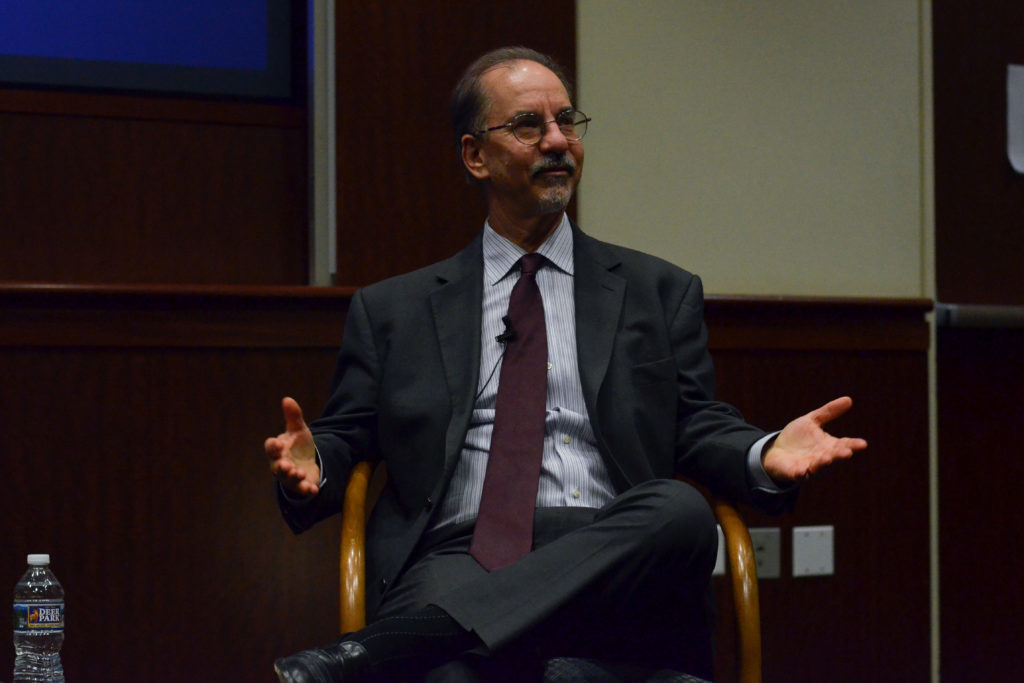Adam Gamoran – the president of the William T. Grant Foundation, a nonprofit foundation that funds social science research – spoke at the Marvin Center Amphitheater Thursday about how universities can conduct better research.
The event, titled “Can Universities Serve the Public Good?”, was hosted by the Graduate School of Education and Human Development. Following welcoming remarks from Provost Forrest Maltzman, Gamoran spoke about the importance of reshaping incentives within universities to support faculty research that responds to real-life challenges.
“My stance is that we can take action with more immediate consequence if we reorient the research taking place in our universities to social impact,” he said.
Gamoran said that the Grant Foundation aims to promote values of diversity, equity and inclusion by encouraging universities to incentivize social scientists to conduct research and develop partnerships with decision-makers at the local and federal levels.
Gamoran said the government should move away from using research findings to promote a political agenda and should instead evaluate research findings in the context of other factors that can affect policy decisions.
“People are not just guided by research – they are guided by experience and local data and professional judgment,” he said. “All of these are sources of evidence in addition to research that have to come into the mix.”
Gamoran described two new research grants from his foundation that are designed to promote research on real-world issues: institutional challenge grants and rapid research response grants. The former, he said, encourage universities to build partnerships with public agencies and nonprofits to develop research agendas, while the latter support efforts to protect vulnerable populations and reduce inequality.
He said while these grants involve different timeframes – institutional challenge grants require long-term research while rapid research response grants involve applications of existing research in the short term – “both of these show the value of applying rigorous research to pressing social problems.”
Gamoran said while scientists can be effective advocates for the application of research in the policymaking process, ultimately the role research plays in the process is up to political actors.
“It’s not up to us, the scientists, to decide what to do,” he said. “That’s the decision politicians have to make.”





